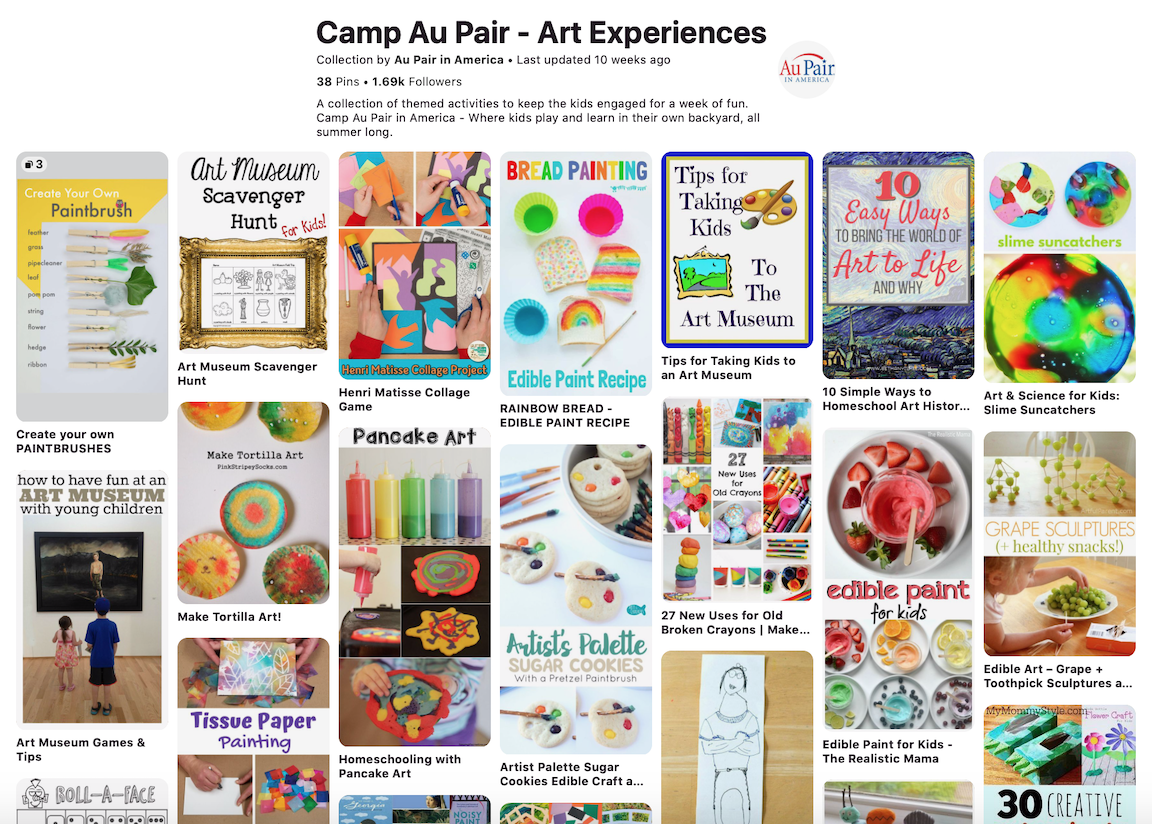 Next week’s Camp Au Pair theme is Outer Space.
Next week’s Camp Au Pair theme is Outer Space.
Crafts, recipes, activities, and games related to outer space can all be found here on the Camp Au Pair – Outer Space pinboard. Here is a fun one that combines a science lesson, art, and snack time.

https://www.opticscentral.com.au/moon-phases-explained-with-oreos
Field Trips can be a great way for kids to learn and have new experiences. Get permission from your host parents before any outings and be sure to check hours and admission information on the websites before you go. Here are a few places to go, that fit this theme:
- Science Center
- Planetarium
- Space Museum
- Play Place with a space-themed area
Webcams – You can do a Google search for websites with webcams that allow you to observe space. Here is one from the International Space Station to get you started.
Online Games – NASA has a gallery of free space games for kids.
Videos – Look for fun videos on YouTube about outer space. Here are a few to get you started.
The Magic School Bus is a television series that follows Ms. Frizzle and her class as they set off on field trips. Most episodes can be found on YouTube. Here are some episodes that fit this week’s theme.
- The Magic School Bus Lost in Space
- The Magic School Bus Out of this World
- The Magic School Bus Sees Stars
Movies – Here are some movies that fit the space theme.
- WALL-E
- Zathura
- Monsters vs. Aliens
- Star Wars
Here are some movies that are PG-13 and may be appropriate for older kids.
- Hidden Figures
- The Martian
Books – Stop by your local library and look for books on outer space. You can also find books being read aloud on Youtube. Me & My Place in Space, There Was an Old Astronaut Who Swallowed the Moon, and Mae Among the Stars are a few fun ones to get you started.
Story Time from Space is a YouTube channel with real astronauts reading children’s books aloud.
Photo: alittlepinchofperfect.com


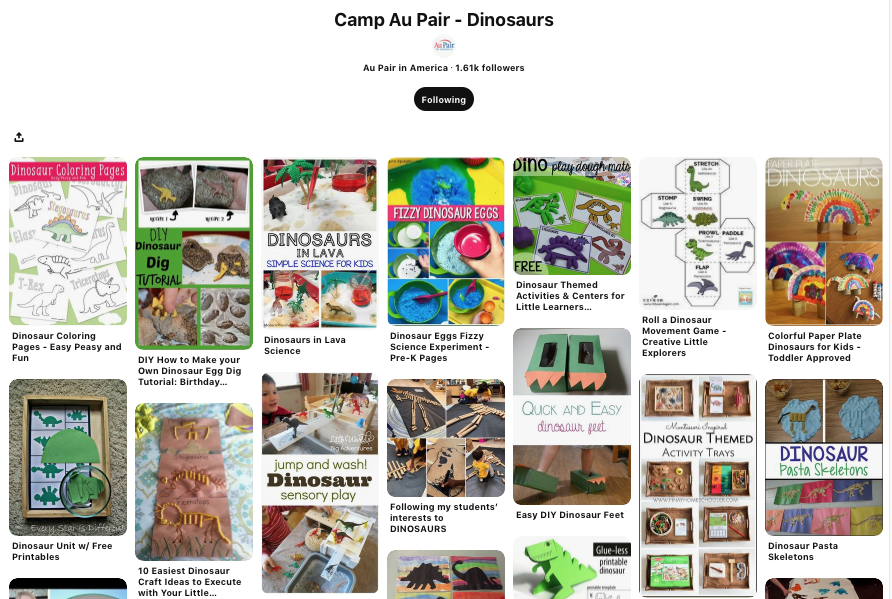

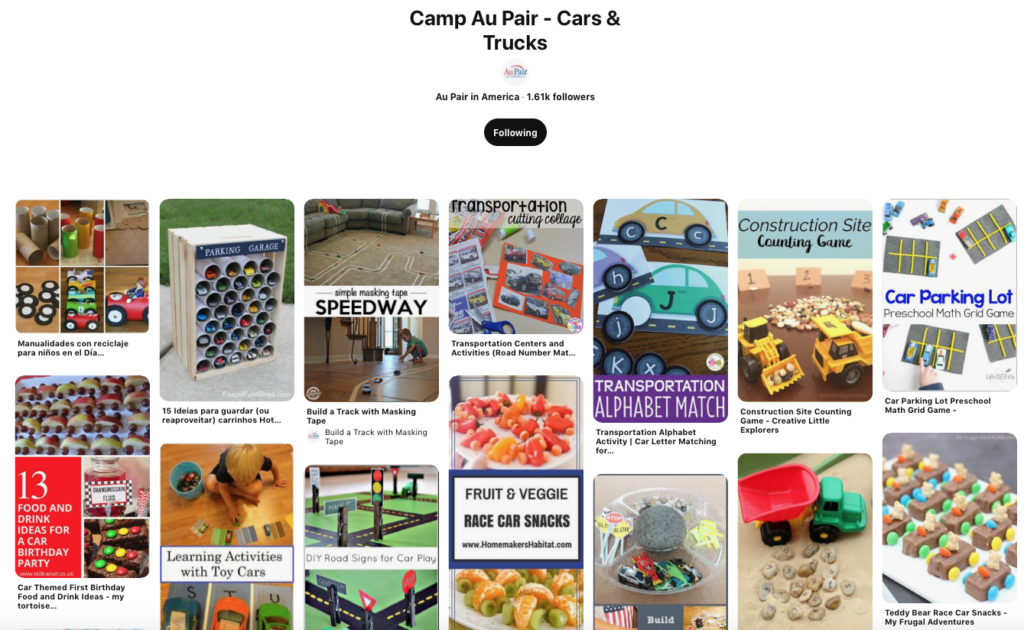

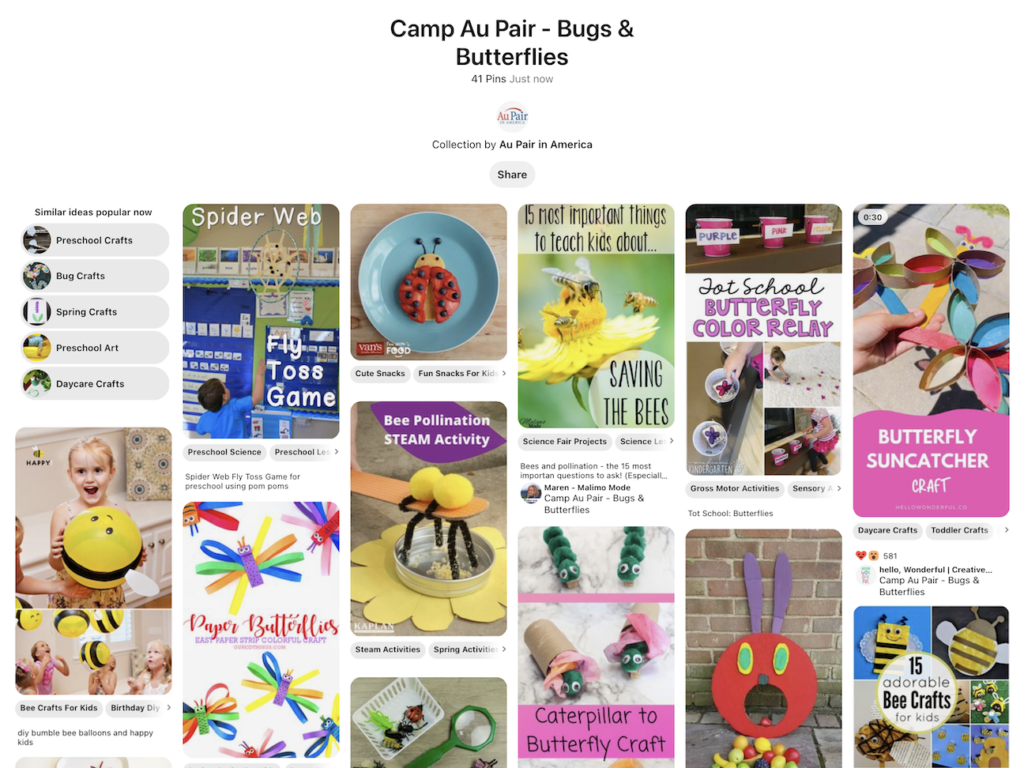

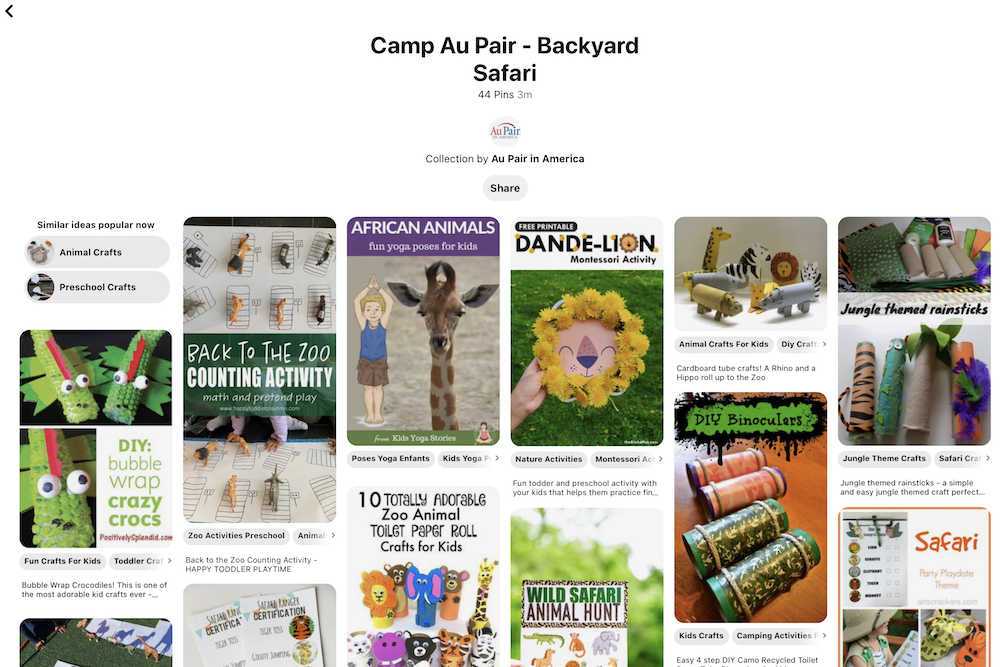
 Next week’s Camp Au Pair theme is
Next week’s Camp Au Pair theme is 


